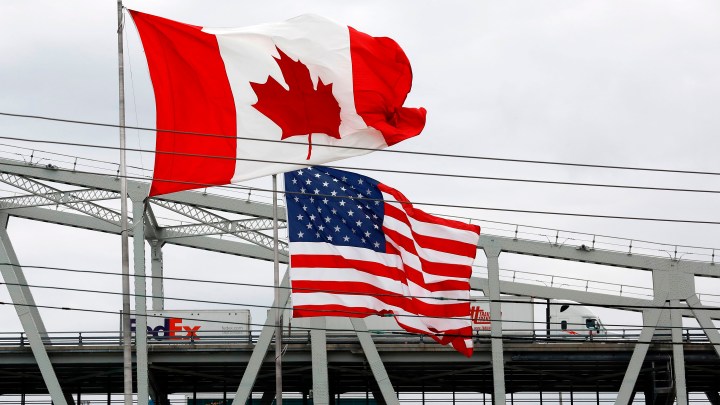
For some U.S.-Canadian couples, the pandemic has meant unwanted separation
For some U.S.-Canadian couples, the pandemic has meant unwanted separation

Rebecca Hoffman is in Alberta, Canada. Her boyfriend, Daniel Collins, is in Tennessee. They’ve been a couple for more than a year. But for months now, they’ve had to communicate online, without seeing each other in person.
The pandemic has led to restrictions on travel between the U.S. and Canada. Certain exemptions have allowed some families living on opposite sides of the border to reunite since those restrictions began in March. Canada created exceptions for spouses and common-law partners to come to Canada, but that doesn’t apply to Hoffman and Collins.
So as the travel restrictions have been extended, Collins has had to tell his employers time and time again to postpone his time off. “[To] say, ‘sorry, just take me off the calendar. I’m not going to be able to go.’ They’re still not going to open the borders. They keep delaying it.”
The travel restrictions aren’t the same in both directions. Canadians can still fly to the United States. But Hoffman, who works as a hairdresser, is now on reduced hours with supplementary emergency unemployment benefits. And she says she’d lose both if she left Canada to visit Collins in Tennessee, and then had to do the 14-day quarantine Canada requires when she returns.
“Now the choice is, you know, to see Daniel and not be able to pay my bills, or to see Daniel and possibly lose my job,” Hoffman said.
Toronto attorney Erin Simpson said some couples who are married but separated by the border have started the paperwork to sponsor their partners to live with them.
“They want to make some long-term changes to make both of their status more secure and to give themselves, you know, sort of more security going forward,” Simpson said.
Before the pandemic, Hoffman and Collins talked about his eventually moving to Canada to live with her. But it’s not an immediate solution to their current separation. Immigration applications are complicated and take time. So they don’t know how long it will be until they see each other again in person.
There’s a lot happening in the world. Through it all, Marketplace is here for you.
You rely on Marketplace to break down the world’s events and tell you how it affects you in a fact-based, approachable way. We rely on your financial support to keep making that possible.
Your donation today powers the independent journalism that you rely on. For just $5/month, you can help sustain Marketplace so we can keep reporting on the things that matter to you.












